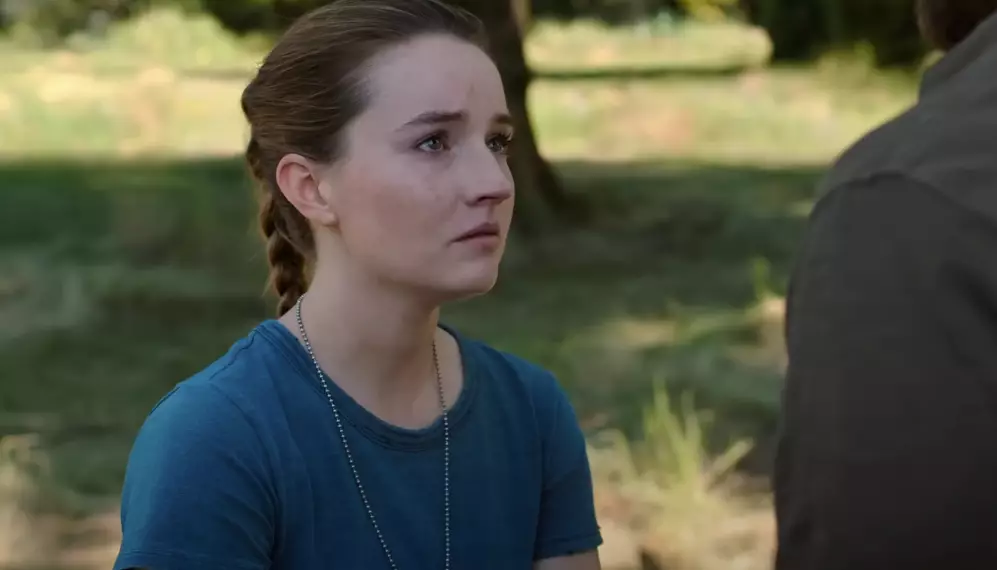In the highly anticipated return of *The Last of Us* Season 2, viewers are immediately thrust into a morally complex narrative as Kaitlyn Dever’s portrayal of Abby captivates and unsettles. The opening moments showcase a chilling monologue, where Abby outlines her intention to hunt down Joel, played by Pedro Pascal, for revenge. This isn’t just a mere plot device; it encapsulates a profound quest for justice through her anguished lens. The weight of vengeance isn’t casually presented; instead, it serves as a painful balm for the emotional wounds that haunt Abby. Dever’s description of Abby as a “chilly ice queen” is an apt metaphor for the character’s icy resolve and the emotional fractures beneath her surface.
Vengeance, as depicted in this series, becomes a double-edged sword that promises retribution but also signifies deep-seated hurt. Abby’s desire to not only kill Joel but to do so “slowly” exposes the depths of her pain and desire for catharsis—her shattered world desperately seeking to mend itself through violent means. This powerful introduction sets the stage for an exploration of grief, loss, and moral ambiguity that defines not just Abby’s journey but also the show’s thematic resonance.
The Weight of Expectations and Online Discourse
Abby, already a divisive figure in the narrative landscape since the release of *The Last of Us: Part II*, continues to spark discussions about female characters in gaming and television. Dever’s awareness of the discourse surrounding her role is commendable; however, it’s equally vital that she distances herself from the surrounding noise to deliver an authentic performance. In her own words, “if I was too worried about what was being said about this character online, I think it would have taken away from the performance.” This determination not to allow external chatter to affect her portrayal is brave and shows a strong commitment to the craft.
Critically, it raises important questions about how actors navigate public perceptions of their characters. Does the overwhelming fan base, which often expresses polarized views, hinder artistic expression? Dever appears to strike a balance, recognizing the underlying sentiments of the character without allowing them to overshadow her interpretation. This empowers her to breathe life into Abby, deepening the character’s complexities rather than simply being a receptacle for viewer expectations.
Creative Confidence Behind the Scenes
The collaborative shaping of Abby’s narrative is a testament to the creators’ vision. With Craig Mazin and Neil Druckmann steering the ship, it’s refreshing to see that they embraced this complex character and forthcoming controversy with an air of confidence. Dever’s revelation that she did not audition for the role presents an interesting layer to the casting process—it underlines the confidence that the creators had in her capabilities. “They’re very confident storytellers,” she notes, emphasizing how their vision aids in the freedom to fully explore characters without restriction.
This supportive framework allows the actors to delve into the narrative’s rich tapestry without being encumbered by fear of misplacement within their roles. The evolution of Abby, as one of the series’ focal points, illustrates that embracing challenging characters leads to more riveting storytelling. It’s a bold approach in a medium that has often erred on the side of simplicity.
Impressive Viewership and Anticipation
As Season 2 begins, it has already made significant waves, attracting 5.3 million same-day viewers—an increase from the inaugural season’s 4.7 million. This growth signals a strong commitment from the audience, eager to explore the morally gray areas and emotional depth the series promises. The premise of serialized storytelling allows viewers to engage with characters at a level that may not be possible in single-issue narratives. Each unfolding episode stands as a testament to the power of storytelling, engaging audiences in both a visceral and an intellectual dance.
The promise of complexity, character development, and moral dilemmas is not just an invitation to consume content but encourages deeper reflection on the nature of vengeance, justice, and redemption. The Last of Us not only entertains but stimulates discussions about humanity’s darker impulses, cleverly wrapped in the guise of its title character’s journey. With each episode airing Sunday nights at 6 PM PT / 9 PM ET, audiences are not just passive watchers; they are participants in a rich narrative experience that ponders the very fabric of morality.


Leave a Reply